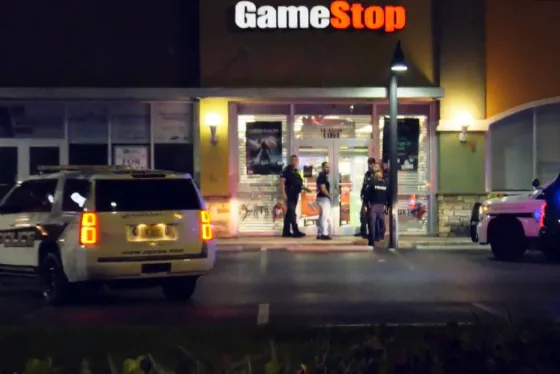A cashier at a GameStop store in a suburban Fort Lauderdale strip mall shot and killed a shoplifter who was allegedly taking Pokemon trading cards. It was a heartbreaking occurrence. In relation to the event, the clerk, Derrick Guerrero, 33, has been charged with manslaughter.
The shoplifter, whose identity is unknown, stole five boxes of ultra-premium “Pokemon Scarlet & Violet” playing cards, each worth $120, according to the Pembroke Pines police, before scurrying off. The culprit was seen on surveillance camera stealing the stolen goods and running towards the entrance.

Guerrero pulled a revolver from his waistband in retaliation for the crime, and with one shot, he struck the shoplifter in the side. The robber left the area after dumping the stolen cards, but he was later discovered close to a pickup vehicle, and someone reported him to the police. Three hours later, at a nearby hospital, the suspect passed away from his wounds.
The event has prompted questions about the legality of Florida’s “stand your ground” statute. When someone is in danger of dying or suffering serious physical injury to themselves or others, they are allowed to use lethal force under this legislation. It does not, however, permit the use of lethal force only to defend property. The allegation of manslaughter suggests that the killing was spontaneous and carried out in the heat of the moment given the circumstances.
Derrick Guerrero has been placed under arrest at the Broward County Jail, with a $25,000 bond amount. It’s unknown at this time if he has legal counsel.
In relation to the situation, GameStop has not yet released an official statement. The sad incident serves as a reminder of the difficulties in interpreting self-defense rules across different legal systems.
Talks on the use of lethal force in cases of property theft have been triggered by the shooting at the GameStop shop. It also acts as a warning regarding the possible outcomes and legal repercussions that people can encounter when trying to use violent tactics to defend their personal or business possessions. The case will probably continue to bring up issues with property protection, self-defense, and the limits of Florida’s “stand your ground” legislation.








